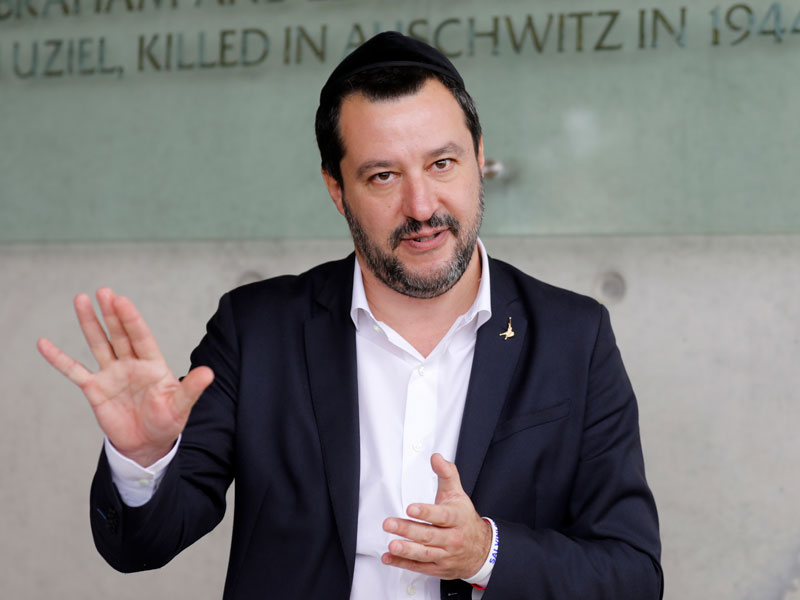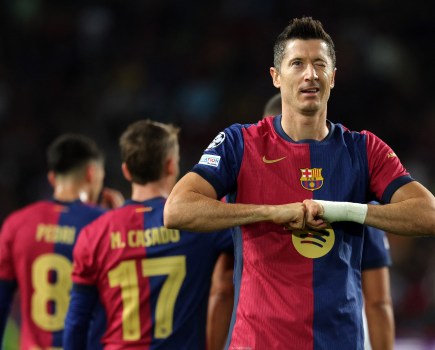The speaker of those controversial words on Monday of this week was Matteo Salvini, Italy’s dynamic, often polemical but rarely silent Minister of the Interior. Salvini’s comments are but a reflection of the inflamed public debate that has been generated by the Italian Football League’s decision to play its annual Super Cup (the Italian equivalent of the FA’s Community Shield) in Jeddah, Saudi Arabia, on Wednesday of next week.
Amnesty International, former Sports Minister Luca Lotti, former Speaker of the Lower House Laura Boldrini, former vice-President of AC Milan, Ms. Barbara Berlusconi, Alberto Barachini of the Italian parliament’s Broadcasting Commission and the consumer rights group Codacons are just some of the prominent figures and organisations who share Minister Salvini’s reservations about the wisdom of playing this game in Saudi Arabia.
Codacons have called on state broadcaster RAI, which has spent €66 million euros on an Italian Cup package which includes this game, not to broadcast it. Or, if RAI insist on transmitting the game, then they should do so with an on-screen message which states that Italy does not approve the Saudi state’s discrimination against women.
Mr. Barachini of the Broadcasting Commission has called on RAI to be vigilant in future, saying:
“I would ask that, in future, RAI would closely assess the wisdom of transmitting events which take place in countries which violate or greatly restrict fundamental human rights”.
Even Ms. Berlusconi, daughter of media tycoon, former Prime Minister and former owner of AC Milan, 81-year-old Silvio Berlusconi, is less than enthused about this game, telling daily, Il Fatto Quotidiano:
“As a woman, I think that it should not have been decided to play this game in a country which has no respect for the feminine condition…”
The former Speaker, Laura Boldrini, hardly put a tooth in it when she said that this whole issue is “extremely offensive to women and to all those who believe in women’s rights”.
To a large extent, the rights of women in Saudi Arabian society are key to this polemic. When Saudi Arabia allowed women to attend a Saudi Premier League for the first time ever last January, commentators pointed to the move as a sign of patently changing times. This was a move which seemed to sit well with the “Vision 2030” modernisation policies of Saudi Crown Prince Mohammad Bin Salman Al Saud. It followed on from the decision in September 2017 to grant a driving license to women, again for the first time ever.
However, in the build up to this game, media reports suggested that women would only be able to attend if accompanied by a man. Both the Italian Football League and Saudi authorities immediately protested that these reports were false and that “single” women would be allowed to attend.
However, even before those reports had raised the women’s right issue, the SuperCoppa Final had already prompted concern amongst human rights watch organisations. International public opinion had been alarmed by the killing of dissident Saudi journalist Jamal Kashoggi. in the Saudi embassy in Istanbul last October. International intelligence services, including the CIA, believe that Mr. Kashoggi was killed by Saudi government agents.
In response to that killing, Amnesty International in late October called on both Juventus and Milan to refuse to play the SuperCoppa final in Jeddah, arguing that “even before the killing of Jamal Khashoggi, Saudi Arabia had a truly appalling human rights record.”
In reality, the decision to play the game in Saudi Arabia was taken last July, before the Kashoggi killing. Italian football has long had a tradition of exporting this game for promotional and commercial reasons. Since 1993, the final has been played twice in the USA, four times in China, twice in Qatar and once in Libya, whilst the current three year deal with Saudi Arabia is reportedly worth €22.5 million.
The Football League has defended its choice of venue, pointing out that the game can play a positive role in the whole process of change and modernisation in Saudi Arabia since it will be the first top level international game ever attended by women spectators.
Human rights activists, however, argue that women’s rights in Saudi still rank among the most restricted anywhere in the world. In Saudi, women need their male guardian’s (husband or relative) permission for issues such as marriage, divorce, travel, education, employment, certain surgery and even opening a bank account.








